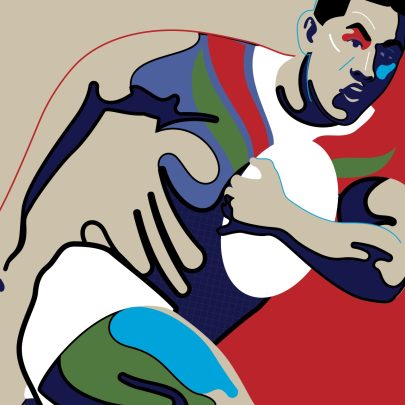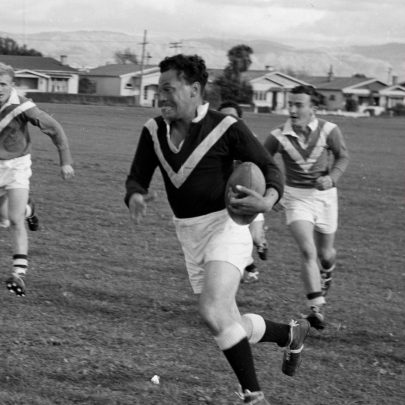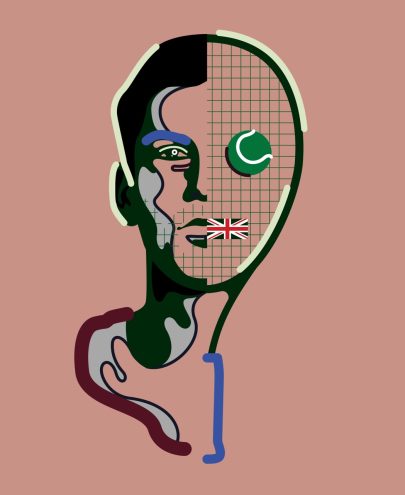Jul 14, 2014 Sport
They called it the “halftime march”. Starting in 1984, crowds at Eden Park would congregate at whichever end Auckland was targeting, before changing ends to mirror their team at the interval. They liked to watch tries scored. The team liked scoring them. Auckland won the National Provincial Championship that year, and would capture the title in nine of the next 12 seasons.
The following year, they took the Ranfurly Shield from Canterbury and did not relinquish it for 60 defences, before Waikato finally bested them in 1993. Auckland, back in the not-so-distant day, was the finest provincial rugby team ever to play the game.
They beat England, Australia and the Lions. They won so much they started to put the Shield on the line for away games (the rules say only home games count). Grant Fox scored 932 points in Shield matches, when for more than 75 years the record had been under 200. John Kirwan ran in eight tries against North Otago one afternoon. Nearly every Ranfurly Shield record belongs to that team and it is hard to imagine those records ever being beaten.
The statistics are bizarre. Bernie McCahill played 91 times for his province and was never on the losing side. Maurice Trapp, assisted by Bryan Williams, assembled a 94 per cent winning record as coach. More than 30 of Auckland’s players went on to play international rugby, with the likes of Sean Fitzpatrick, Michael Jones, Zinzan Brooke and Kirwan himself among the greatest ever at their positions.
It’s not as though they were a unified block, either. The Shield era saw factions driven by club allegiances, a divide caused by the unsanctioned Cavaliers tour to South Africa in 1986 and even, after one unbeaten season, an attempt to unseat coaches Trapp and Williams.
Yet they kept winning. The talent ran so deep that, in the early 90s, new coach Graham Henry eased four All Blacks, with 450 games for the province among them, out of his starting XV. Players as fine as Frank Bunce, Eric Rush and Ant Strachan had to head across the bridge to North Harbour just to get playing time.
And all the while, the crowd marched on.
Today, small crowds stay sullenly in their seats. Over the past 10 years in Super Rugby (which has replaced the NPC as New Zealand rugby’s premier competition), there have been no titles and only two semifinal appearances — both losses. In that time, the Blues — the franchise that covers Auckland as well as the North Harbour and Northland unions — have endured a 67-win/69-loss record. That’s right: these days, the city’s glamour team lose as often as they win.
Auckland used to have the finest coaches in the country battling to get the job. In more recent times, the Blues were reduced to hiring Australian David Nucifora, who was only available thanks to a player mutiny at his old club. Nothing changed. His successor, Pat Lam, visibly broke down under the stress. John Kirwan was recruited as a replacement, despite winning fewer than half his games in his previous head-coaching roles — a record he has continued in Auckland.
This season has, if anything, been a new low. It began with the signing of a clearly washed-up Benji Marshall for a cool half million. He was gone by May. Piri Weepu battled back from a stroke, but even that wasn’t enough to inspire his teammates, whose on-field efforts he publicly criticised. Henry, back as technical adviser, skipped a game in Australia to go fishing, before announcing he wouldn’t be returning at all in 2015. Mick Byrne, the Blues’ forwards coach, who has also been part of the All Blacks’ coaching set-up, announced he was leaving too.
Strangest of all — at least looking in from the outside — all this disaffection and losing have happened while key positions at the franchise are held by the very people who should know how to prevent it: players and administrators from the Shield era.
Coach Kirwan played throughout the entire run, and board member Gary Whetton for most of it. Henry was Auckland coach in the era’s final years and his predecessor, Trapp, is president of the Auckland Rugby Union.
Yet the team keep losing, game after game, year after year.
It may not be their fault. Perhaps what’s happening to Auckland, the city, is having a dramatic and direct impact on Auckland rugby and its premier team. One of the things we celebrate most about this town is its diversity, but the golden era occurred in a different, more bicultural Auckland. The waves of immigration that have swollen our population may seem to have created a larger potential playing pool, but the numbers are deceptive.
Since the 80s, Auckland’s Pacific Island population has risen dramatically, and while there have been dozens of incredible Pacific Island rugby players, not as many are available to the Blues as you may think.
For starters, they’re as likely to play league as union. Second, Island players who don’t think they will make the All Blacks frequently play for their own nations of origin. That’s good for the Island nations and for rugby, but many of them leave Auckland to take up lucrative professional contracts in France, Japan and the United Kingdom.
Other new arrivals may be troubling the Auckland Rugby Union even more. Asian immigrants for the most part have different cultural priorities and a default affection for rugby union is not among them. At Auckland Grammar, which has produced more All Blacks than any other school, Pakeha and Maori boys — the traditional core ethnicities of rugby — make up a little less than 50 per cent of the student population. The rest are mostly of Asian origin.
In the Super 15 this year, only one player in the whole competition is of majority Asian extraction — Fumiaki Tanaka of the Highlanders, and he’s a Japanese import.
Competition has played its part, too. While rugby’s player numbers have stayed relatively flat, sports such as soccer and cycling are now seeing massive growth.
And at the top level, there were no Warriors back in 1990, and no Breakers either.
This competition isn’t just for attention — it’s also for young athletic talent, which is pulled into a code’s orbit. Even the Junior Warriors exert a pull — playing on Sky, travelling every other week — which club rugby can’t hope to match.
Professionalism has inflicted some wounds. In the twilight of the amateur era, when we were winning, there was little incentive for talented young rugby players to move around the country or go overseas to chase a career in the code.
Even without the incentives to travel and absorb a different culture, there are greater salaries and opportunities in professional teams throughout Europe and Japan, to say nothing of other domestic teams.
But all New Zealand teams have to cope with these pressures, and they’re not all failing as consistently as the Blues. In fact, two of them — the Chiefs and the Crusaders — have built powerhouse franchises.
Is it just coincidence? “You wonder whether it [the 1980s Auckland team] was just a collection of super freaks,” one commentator said to me recently. “So many of those players have gone down in the Hall of Fame in their position. Maybe that cannot happen ever again.”
A team of freaks, from a different time and a simpler city?
Random luck? External factors? Those aren’t the things you blame for failure. They’re the world in which you operate. The Blues have far bigger problems, and the blame for them lies with their own administrators and coaches.
Most prominently, it’s talent recognition and retention. And it’s this area in which the franchise has failed most egregiously. Kieran Read was head boy of Rosehill College in Papakura, but the All Blacks captain-in-waiting was lured to Canterbury, a province from which most smart players never return. Malakai Fekitoa barely played for the Blues last year, so he moved to the Highlanders — with whom he has been in such good form he was called into the All Blacks training squad. Mike Harris left North Harbour in 2010 and debuted for the Wallabies two years later.
Then there are those lost to league. Roger Tuivasa-Sheck, one of the most explosive young talents in the National Rugby League, was a secondary schools union rep for New Zealand, having shone in the Otahuhu College 1st XV. Shaun Johnson played league and union in Orewa, and the Warriors’ scintillating half-back is one of several candidates we’d kill to have in that eternally problematic 10 jersey. His teammate Konrad Hurrell was plucked from Auckland Grammar, the cradle of union, to become one of the Warriors’ key offensive threats.
There are dozens more, all over the world, including former All Black first fives Nick Evans and Luke McAlister, who looked at the Blues and decided they were better off elsewhere. So did Mt Roskill-born family man Sonny Bill Williams, who chose Canterbury and then the Chiefs over his hometown.
Kirwan recently demanded intervention on this front in the form of a transfer fee, essentially asking for trade barriers to try to counter the endlessly outgoing tide. The attractions of living and working in our biggest city and market should make retention easy. The Blues make everything look hard.
For those who remain, things are little better. Once identified, talent must have faith in the selection process. In Paul Thomas’ John Hart bio-cum-coaching manual Straight from the Hart, the coach who started it all devoted a chapter to selection quandaries. “Be methodical and consistent. Poor selection practices, be they chopping and changing, making wholesale changes in one hit, or knee-jerk reaction, are the surest and quickest way to lose players’ trust and respect.”
The Blues’ recent coaches have disobeyed most of those rules, though few with such dedication as Kirwan, who has changed first five alone six times in 11 matches this season. Shockingly, Chris Noakes and Simon Hickey are but two of the 20 who have played the position since Carlos Spencer left.
That doesn’t just impact on those within the squad: it serves as a billboard to the whole country’s best and brightest that we have an insecure environment, with selectors and coaches who either have no instincts, or don’t apply them consistently. Dan Carter lives in Auckland but plays for the Crusaders, even though they have so many good options in his first-five position they clearly don’t need him. But if you were Carter, would you want to play for the Blues?
That brings us to the third long-running failure within the franchise: culture. This is what defines the difference between intermittently competent teams and dynasties.
The San Antonio Spurs have made the NBA playoffs for 15 straight seasons, and in the NBL, the Perth Wildcats last missed the post-season in the 80s. The Melbourne Storm won a title in just their second season and, salary-cap breaches notwithstanding, have been consistently among the NRL’s best sides ever since. Manchester United under Sir Alex Ferguson were a soccer team like no other, winning the English Premier League 13 times in 22 seasons. In Super Rugby, the Crusaders have had continuity of leadership, selection, retention and results throughout the comp’s existence. The Chiefs look to be building a similar streak.
These great teams recruit with precision and retain talent through consistency. They demand performance and discipline from players, who know the reward for their fealty to the club’s way will be titles and often higher honours.
By contrast, Blues players have shown up out of shape and kept contracts — Piri Weepu — or rejected the team only to return when all other doors were closed, like Ma’a Nonu. Things seem even worse off-field. After Andy Dalton’s wretched tenure as chief executive ended late last year, the Blues rightly targeted Richard Clarke, the CEO who steered the Breakers to three straight titles. After an agonising courtship that dragged on for weeks, he ultimately turned down what should be the most coveted job in Auckland sport.
Instead, Michael Redman was given the job, despite questions about his work as CEO of Hamilton City Council. One of his first major moves was to grant Kirwan a mystifying contract extension in February, which must have been motivated by faith in the man rather than pleasure at his tawdry results.
Meanwhile, the two proven coaches in the set-up, Henry and Byrne, have shipped out. That, in itself, should have set alarm bells ringing all around Eden Park.
The tragedy is that, despite all the above, the talent is still there. The Blues have senior All Blacks: Keven Mealamu, Tony Woodcock, Jerome Kaino, Nonu. They have a wealth of great young players: Steven Luatua, Charles Piutau, Patrick Tuipulotu, Tevita Li. Yet the team remain an inconsistent mess, muddling along blindly from season to season.
Our shiny revamped stadium is mostly empty: it hosted just 14,000 for the recent clash with the Reds. Tellingly, the last time Eden Park sold out was for rugby league’s NRL Auckland Nines — in a city once owned by union as of right.
Fixing this will not be easy. The responsibility lies ultimately with a new board, featuring Murray Bolton, who pumped $4 million into the franchise in a partial privatisation last year. To turn the Blues’ potential into consistent performance, that board has to build not just a team but a machine.
It is very hard to escape the conclusion that a key decision must be to find a new coach. John Kirwan rightly enjoys massive personal popularity and respect, but he has shown little sign of having the necessary skills to coach the Blues.
There’s not a lot of anger about the persistent mediocrity of this team, and that should worry them enormously. Shrugging indifference — the sign Auckland is well on the way to just not caring — is far more corrosive. It’s the precise inverse of the obsession which gave birth to the halftime march.





